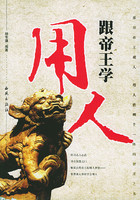On the death of Henry VIII. all parties looked forward to a complete change in the religious condition of England. On the one hand, those, who longed for a return to Roman obedience, believed that royal supremacy must of necessity prove both unintelligible and impracticable in the case of a mere child like Edward VI. (1547-53);while, on the other hand, those, who favoured a closer approximation to the theology and practices of Wittenberg or of Geneva, saw in the death of Henry and the succession of a helpless young king an exceptional opportunity for carrying out designs against which Henry had erected such formidable barriers. To both parties it was evident that at best Edward VI. could be but a tool in the hands of his advisers, and that whichever section could capture the king and the machinery of government might hope to mould the religious beliefs of the English people.
For more than a year before the death of Henry VIII., Edward Seymour, Earl of Hertford and uncle of Edward VI., the Earl of Essex, brother of Catharine Parr, Viscount Lisle, Lord Admiral and afterwards Earl of Warwick, all of whom were in favour of religious innovations, had been advancing steadily in power, to the discomfiture of the conservative section led by Bishop Gardiner, the Duke of Norfolk, and the Lord Chancellor Wriothesley. The death of Henry VIII. had been kept a secret until the Earl of Hertford had all his plans matured for securing control, and for the proclamation of Edward VI.[44] (31st Jan. 1547), then a boy of ten years. Henry VIII. had bequeathed the crown to his son, and on his death without heirs to his daughters in turn, the Princess Mary daughter of Catharine of Aragon, and Elizabeth daughter of Anne Boleyn. By his will also he appointed a council the members of which were to govern the kingdom as a body till the king should attain his eighteenth year, but he sought to provide against any serious innovations by authorising the king to repeal all changes that might have been made by the council during his minority. If one may judge from the terms of his will Henry's religious views at his death were evidently what they had been when in 1539 he passed the Statute of Six Articles, but, at the same time, it is a noteworthy fact that he excluded Bishop Gardiner from the list of executors of his will, and appointed two divines well known for their leaning towards German theology as tutors to the young king.
In nearly every particular the council of executors failed to carry out the wishes of the late king. The Earl of Hertford, created later on Duke of Somerset, became Protector with almost royal powers, and instead of defending the religious settlement the majority of the council set themselves from the very beginning to initiate a more advanced policy. Cranmer as Archbishop of Canterbury could be relied upon to support such a course of action, while, of the principal men who might be expected to oppose it, the Duke of Norfolk was a prisoner in the Tower and the Lord Chancellor Wriothesley was dismissed to make way for a more pliable successor. The bishops, who were regarded merely as state officials, were commanded to take out new commissions.
Cranmer obeyed without protest, as did all the others except Gardiner, who questioned the authority of the council to issue such a command at least until the supreme head of the Church should have reached his majority.[45]
Those who had been held in check by the repressive legislation of Henry VIII. felt themselves free to renew the attacks on the practices and doctrines of the Church. The royal preachers who had been appointed for the Lenten sermons, Dr. Barlow, Bishop of St. David's, Ridley one of Cranmer's chaplains, and others, not content with abusing the Bishop of Rome, declared war on images, relics, and even on the Lenten fasts and abstinences. Against such novelties Gardiner addressed an indignant protest to the Protector and council, warning them that during the minority of the king there was no power in England competent to change the religious settlement that had been accomplished by Henry VIII. But his protest fell on deaf ears. The war against images was carried on vigorously, though legally only those images that had been abused were forbidden, and even in Bishop Gardiner's own diocese he was powerless to resist those who knew they could count on the support of the Protector.
In July 1547 two important publications were issued, one, /The Injunctions of Edward VI./, the other, /The Book of Homilies/, composed by Cranmer, and issued by the authority of the council. The former of these commanded that sermons should be delivered at fixed intervals against the Bishop of Rome, that images which had been abused, shrines, pictures, and other monuments of superstition should be destroyed, that the Gospels and Epistles should be read in English, that alms boxes should be set up in all churches, and that the clergy should inform their people that the money spent on pardons, pilgrimages, candles, and other blind devotions should now be devoted to the support of the poor.[46] The /Book of Homilies/[47] was to serve as a guide for preachers in their public services. A royal commission was appointed to insist upon the observance of these Injunctions, but in London Bishop Bonner refused at first to accept the commands of the visitors, and though later on he weakened in his resistance, he was committed to prison as a warning to others.
Gardiner boldly denounced the visitation as illegal and unwarrantable, but the council instead of meeting his arguments and remonstrances ordered his arrest (September 1547). In many places the proclamation for the removal of images led to violent disturbances, and free fights within the churches were not uncommon. To put an end to any misunderstanding on this subject for the future the council ordered the removal of all images from the churches (Feb. 1548).













